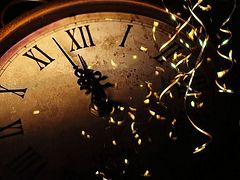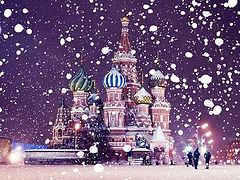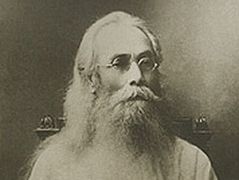This evening, brothers and sisters, is the final boundary of the past year: Tomorrow we will wake up in a new year. But will we wake up? Will we all wake up? We do not know this for certain—even less do we know what awaits each of us in the coming year. Will happiness go on for those who have nothing left to look for other than the continuation of their joys? Will the tears dry for those who have nothing left to desire other than an end to their sufferings? Will the earth bring forth the fruit of the hardworking farmer, or will he bury his seeds without return into the bowels of the earth? Will the peoples of the earth be at peace, or will a new whirlwind of war stir the face of the earth? Will there be good weather, or will some angel of death come and decimate the cities and countryside? All of this, both the great and the small, for entire peoples, and for you and me, dear listener, is cloaked with an impenetrable curtain and sealed with seven seals.
Why is it sealed? Why can’t man know the future as plainly as the present and the past? The example of many holy men, who possessed the gift of clairvoyance and saw the most distant and happenstance future, points to the contrary. Man could have the ability to see the future, but in his current state he cannot have it without harm to himself. That is why he is deprived of it for a time.
In fact, brothers and sisters, what joy would it bring to the father of a family, surrounded by his cheerful children, to see that the object of his love is doomed this next year to the grave? What consolation would it bring to a preacher of God’s word to know ahead of time that all of his words would have no effect upon the hearts of his listeners? What use would it be for a scientist to foresee that he will not finish the great discovery he had begun? Clearly, in all of these and similar cases it would be much better not to know the future.
“But,” you say, “it would be useful for people’s morality to know the future, and it would save them from passions and sins, not allowing the end of their lives to leave their memory.” But for this goal we need to know from the future what is already revealed to us, what we have known for a long time. We especially need to know that we will die. And what is better known than that? We only don’t know when we will die; but this should produce an even greater saving fear and bridle our passions. We also need to know what will happen to us after death—and who can say that this is unknown? Paradise, hell, and the rewards are revealed in the Gospels for each and all. We only don’t know those things that are just objects of our curiosity—for example, when the world will end, precisely where the judgment will be, or how the righteous will live. But knowing these things would not add a bit to our salvation, and therefore it is not given to us to know them.
But just look at what everyone is given to know in exchange! The whole present is given to us to know. Obviously this is more important than both the past and the future, for both the one and the other depend upon it. And here is what is most important in time, what the Lord of time has given to each of us: Do as you wish, do with what you have as you please: Fulfill the law or heed your passions, recognize the Creator over you or reject His Providence, go to heaven or to hell—it’s all as you will it, it all depends on you, all given over to you. Here God’s omnipotence remains as if without effect and does not hinder you in the least. God’s love calls us constantly to Himself, acts in our reason and conscience, teaches us through external events in life, instructs us through the voice of the prophets and apostles. But our freedom remains inviolable; every minute we can turn where we wish—to the Heavenly Father, or to the enemy of our salvation. And what is even more important is that by making good use of the present we can have a good effect on the future, for we shall reap what we’ve sown. This even influences the past, for if we spend the present well, we can smooth out a bad past.
Let us come to know, brothers and sisters, God’s mercy toward us and our own advantage; let us abandon attempts to see into the future and torment ourselves with guessing—we shall make use of what has been given to us, using the present time as we should. As a reward for this we will peacefully go to meet any future. Should it bring us unhappiness in spite of our virtue and clean conscience, we will bear it indifferently and turn it to the eternal good for our souls. Should the angel of death himself come after us, he will find us with the burning lamp of faith and love. Amen.





Άγιος Παϊσιος to warn us of the coming <<γεγονότα>> to instil repentance in us. This is when knowing the future is beneficial because prophecies can lead men to repentance as in the days of Jonah and the sons of Ninevah. Unfortunately today people are like those in the days of Noah. βλάκες!